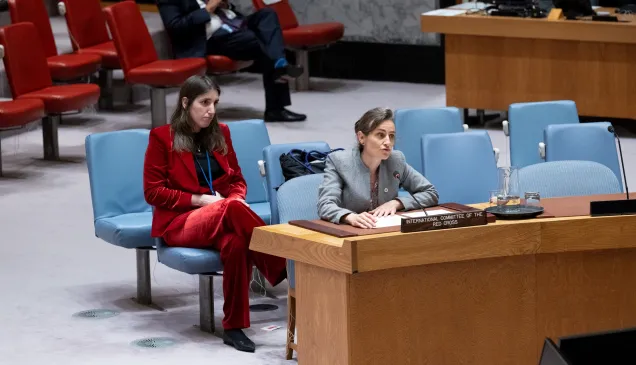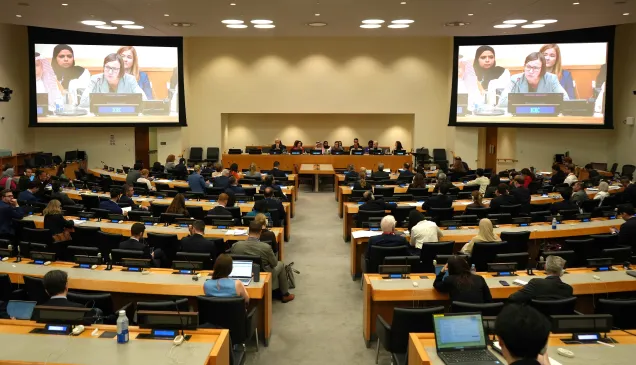Geneva/New York (ICRC) – The International Committee of the Red Cross (ICRC) and the World Health Organization (WHO) are seeking stronger action by States to protect people providing or receiving health care in conflict situations.
A high-level panel discussion on the sidelines of the United Nations General Assembly in New York on 25 September will focus on concrete measures that governments can take to ensure the safe delivery of impartial health care.
"During my visits this year to Gaza, Syria, South Sudan and other conflict-stricken countries, I saw once again how the disruption of health services can affect an entire population," said ICRC President Peter Maurer, who will chair the panel along with WHO Director-General Dr Margaret Chan.
"While many countries have taken steps to tackle obstacles to the delivery of health care, more has to be done," added Mr Maurer. "We need to see good practice shared, and international cooperation and assistance strengthened, so that the wounded and the sick may continue to receive care, and health-care workers may continue to provide it."
In 2012 the ICRC launched the Health Care in Danger project, a four-year effort to secure better protection for health services in conflict and emergencies. The goal is to develop practical recommendations – for instance, guidelines for armed forces staffing checkpoints so ambulances carrying wounded patients can pass quickly.
The role of States in protecting health care needs to be reinforced. States should ensure that their domestic laws meet international legal standards for the protection of patients and health workers, collect data on violence against patients and health workers and investigate its causes, and cooperate in developing worldwide systems for understanding and tackling the problem.
“Hospitals and medical personnel, the providers of primary medical care to the civilian population, are explicitly protected. Yet attacks are not just continuing, they are increasing,” said Dr Chan. “Health workers themselves have an obligation to treat the sick and injured without discrimination. States must respect that obligation, and not punish health workers for performing their duty.”
WHO has a specific mandate to protect the right to health, especially for people affected by humanitarian emergencies. The organization documents attacks on patients, health staff and facilities, and leads the Safe Hospitals Initiative, which aims to ensure healthcare is available in all settings, including emergencies.
Better statistics would help end chronic under-reporting of attacks on health services. ICRC research monitored more than 2,300 incidents involving serious acts or threats of violence in 23 countries between January 2012 and July 2014. But many incidents go unrecorded and the statistics do not reflect the indirect and multiplier effects on community health from attacks on medical staff or denial of access to hospitals and clinics.
For further information, please contact:
Anna Nelson, ICRC Washington tel: +1 202 587 4604 or +1 202 361 1566
Anastasia Isyuk, ICRC Geneva, tel: +41 22 730 30 23 or +41 79 251 9302
Paul Garwood, World Health Organisation, tel +41 22 791 1578 or +41 79 603 7294



